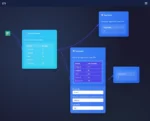In today’s fast-paced, data-driven world, businesses rely on real-time insights to make informed decisions. Every minute, massive amounts of data flow into systems, and conventional methods of updating entire datasets become increasingly impractical and expensive. Enter differential computation—the practice of intelligently calculating deltas, or incremental changes, instead of complete recomputations. By adopting differential computation, organizations optimize data processing, drastically reducing resource consumption and enhancing analytical agility. Whether you’re navigating complex streams of financial data, optimizing your marketing strategies, or tackling resource constraints in data engineering, mastering delta computations positions your business to leverage speed and flexibility. Let’s explore how differential computation transforms daunting computational challenges into efficient and impactful data solutions.
What Are Differential Computations and Why Do They Matter?
Imagine recalculating an entire report or dataset each time there’s a small update—a new customer purchase, a tweak in inventory levels, or an incremental change in database records. Historically, organizations updated datasets through batch recomputation, which meant regenerating the entire calculation from scratch. However, differential computation provides a smarter strategy by recalculating only what’s necessary, focusing explicitly on the differences or “deltas” between previous and current data states.
The rationale is straightforward but powerful: instead of wasting computing resources on recalculating a majority of unchanged data, differential computation efficiently targets only the updated data subset. Consequently, it drastically decreases the processing time and resource demands associated with large-scale computations. In scenarios such as real-time dashboards, transaction-heavy financial analyses, and constantly evolving consumer analytics, this technique delivers significant competitive advantages.
Furthermore, differential computation seamlessly supports the rapid scaling demands of modern businesses. By increasing throughput and responsiveness—critical elements in delivering effective data analytics and customer experiences—business leaders and decision-makers realize unparalleled agility in their strategic processes. Leveraging delta computation properly means drawing benefits across diverse organizational functions, from business operations to product innovation, ensuring data processing no longer becomes your bottleneck.
The Technical Strategy Behind Deltas: Calculating Only What’s Necessary
One question decision-makers commonly ask our team at Dev3lop is: what exactly is involved in identifying and calculating these changes efficiently? At the core, differential computation draws inspiration from event-driven architectures and data-stream processing techniques, making sure we track data changes meticulously. Fundamentally, differential computations rely on clearly identifying “state,” or known information at any given time, and tracking incremental shifts occurring due to events or data updates.
This process aligns closely with established software architecture paradigms like hexagonal architecture in data pipelines, providing clear boundaries for tracking changes and maintaining clean, decoupled system layers. By isolating state management, engineers can build and maintain differential logic easier, gaining precise control over the logic, accuracy, and transparency of delta computations.
Moreover, differential computation complements sophisticated verification and security frameworks. Advanced techniques, such as payload tokenization techniques for secure data processing, are naturally integrated. Ensuring secure data transit during incremental updates is crucial, especially for financial institutions or healthcare organizations requiring auditable and compliant data handling practices.
Finally, embracing event-oriented practices, like event sourcing for state restoration, simplifies differential computations. Event sourcing frameworks make it easier to reconstruct past states or replay transactions, which are key processes in validating the accuracy and correctness of delta computations across your data management ecosystem.
Differential Computation in Practice: Real-world Use Cases
At Dev3lop, we have observed real-world situations where differential computation significantly boosts efficiency, analytics effectiveness, and cost savings. Consider an ecommerce business analyzing customer purchase history intensively for insights. Instead of repeatedly recalculating every aspect of user behaviors after each new purchase, differential computation empowers systems to update analytics incrementally—ensuring continuously fresh insights without the cost overhead of extensive computations.
Sound interesting? Combine this capability with advanced analytics techniques, such as market basket analysis, and you possess a formidable capability for identifying complementary offerings and targeted upsells. Leveraging real-time updates ensures businesses can promptly shift strategic initiatives and react immediately to market conditions.
Another potent application lies in financial analytics. Institutions involved in markets with real-time trading systems can significantly benefit from differential computations to instantly update financial portfolios, risk scenarios, and forecasting models. Limiting recalculation to changes considerably reduces latency, lessens infrastructure costs, and ensures reliable operational results.
Additionally, differential computation becomes critical in scenarios where data governance is paramount. Implementing data governance practices, such as effective data asset deprecation workflows, is simplified. Tracking deltas helps companies proactively manage their data lifecycle, ensuring compliance, reducing asset redundancy, and effectively maintaining data quality and relevance in real-time.
Integration and Infrastructure: Implementing Your Differential Computation Strategy
Implementing efficient differential computation processes is not simply a conceptual exercise; it’s a strategic infrastructure choice that impacts your technology stack. For example, data engineers and architects frequently leverage infrastructure as code methods to script their infrastructure reliably. Combining infrastructure as code with automated processes for identifying and calculating deltas enables rapid scaling, effortless deployment, and continuous integration seamlessly embedded within your workflow.
Our experienced consultants at Dev3lop recommend businesses segment their infrastructure intelligently, separating systems-of-record that capture incremental changes from the analytical data environments responsible for computation. Clear boundary definitions help isolate responsibilities, create easier governance mechanisms, and simplify debugging processes.
As specialists in innovation and analytics, we’ve assisted organizations of different sizes and industries optimize their data pipelines. From non-profit institutions seeking streamlined data management through tailored business intelligence for non-profits processes to high-scale enterprise companies chasing incremental benefits, differential computation successfully integrates within various contexts.
Further benefits are realized by adopting intelligent agent-driven solutions for automating delta identification and calculations. Our tailored AI agent consulting services demonstrate the powerful impact of automation in differential computations, enabling businesses to stay agile, proactive, and adaptive to constantly changing analytical demands.
Roadblocks and Solutions: Common Challenges in Adopting Differential Computation
Despite its evident benefits, differentially computing data isn’t without its own hurdles. Organizations inexperienced with differential computations sometimes express concerns regarding complexity and data pipeline maintenance. Conditional calculation logic, state storage, and delta management can be perceived as challenging without effective guidance and implementation best practices.
The good news? These challenges are manageable and solvable. Adopting platform-agnostic data pipeline architectural styles, clearly defined through methodologies like hexagonal architecture mentioned earlier, greatly streamlines complexity. Establishing modular events and explicit state-handling processes clear ambiguities about managing deltas, mitigate risk of errors, and simplify long-term maintenance concerns.
Another common obstacle relates to tracing systems and event-based logging extensively. Effective event-sourcing strategies provide clear logs and straightforward traceability. When adopting differential computation as part of your organizational digital transformation, it’s vital to prioritize robust tracing capabilities and audit trails, ensuring transparent computation processes began with strategic thinking and clear integration planning.
Additionally, providing teams with adequate training and resources is paramount. Making experienced consultants and subject matter experts available at critical junctions helps ensure successful integration at both technological and process-oriented levels. Gradually integrating smaller-scale differential computation solutions and scaling can simplify the adoption phase greatly.
Conclusion: Achieving Optimal Results Efficiently Through Differential Computation
As data continues to evolve and emerge as both a strategic asset and possible liability, mastering efficient data processing strategies like differential computation isn’t just an advantage—it’s essential. Embracing the concept of harnessing “deltas done efficiently” enables organizations to maximize data value, reduce operational costs, and drastically improve throughput.
From building better infrastructure and embracing innovative automation methodologies to meaningful analytics with direct business impacts, differential computation provides unparalleled competitive advantages. At Dev3lop, our commitment to helping organizations leverage cutting-edge data solutions guides our differential computation strategies, delivering quantifiable results through smarter, faster, more effective analytics.
Ready to implement differential computations with confidence, clarity, and precision? Take advantage of data-driven insights faster, more securely, and efficiently with differential computation strategies crafted by experts.

























